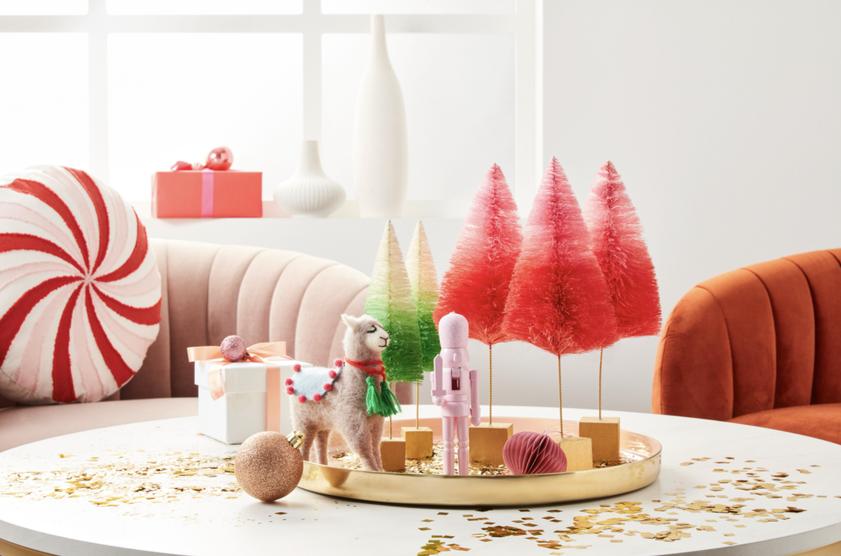With the launch of H for Happy, Bed Bath & Beyond has completed its goal of introducing at least eight private labels in fiscal 2021.
In March, the home retailer kicked off its owned brand roll out with the launch of Nestwell, soon followed by others like Simply Essential, Our Table and Wild Sage. The private label push has been part of Bed Bath & Beyond's three-year turnaround strategy, which also includes remodeling stores, investing in tech and building on its omnichannel approach.

The retailer in September said it had remodeled about 70 stores so far, including its flagship location in New York City, which reopened in July. Bed Bath & Beyond has also been working to build out its brand partnerships, including with Casper for a shop-in-shop concept at its New York flagship and with Safely, Kris Jenner's cleaning product line.
But analysts have raised concerns over whether these initiatives are actually producing results with GlobalData Managing Director Neil Saunders earlier this month noting that "these efforts have struggled to deliver a sustained performance."
Bed Bath & Beyond, which got a boost last year from selling in a high-demand category, is starting to see sales slip as that demand wanes. The retailer in September reported second quarter net sales fell 26% year over year to $2 billion, while comp sales decreased 1%. Bed Bath & Beyond also swung into the red, with a net loss of $73 million from a profit of $218 million in the year-ago period.
Earlier this month, Bed Bath & Beyond announced a number of new initiatives. The retailer has formed a partnership with Kroger to sell products from Bed Bath & Beyond and BuyBuy Baby, including its private labels, in some of the grocer's stores as well as on its website. Bed Bath & Beyond also announced it launched a digital marketplace, which will be integrated into its own digital platform, to sell products from third-party vendors.